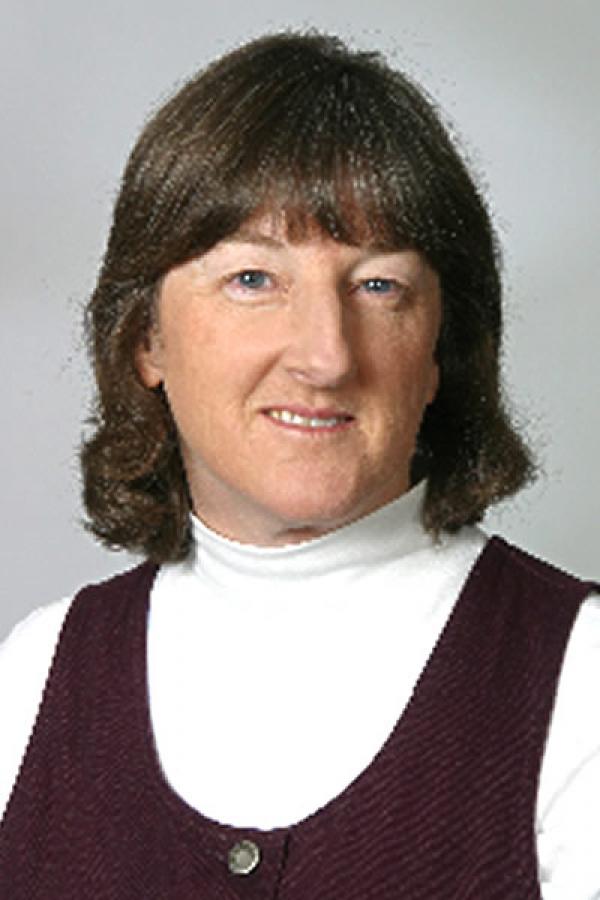Helen Frost

Photo by James Gabbard
Bio
Helen Frost’s first poetry collection, Skin of a Fish, Bones of a Bird, was published by Ampersand Press in 1993 as the winner of the Women Poets Series Award. The following year, she received the Robert H. Winner Memorial Award from the Poetry Society of America. She has received three fellowships from the Indiana Arts Commission. Over the past ten years, she has authored five books for Farrar, Straus, and Giroux Books for Young Readers: Keesha’s House (2003), Spinning Through the Universe (2004), The Braid (2006), Diamond Willow (2008), and Crossing Stones (2009). These books have won numerous awards, including, for Keesha’s House, a Michael L. Printz award from the American Library Association. as if a dry wind, Frost’s second collection of poetry for adult readers, will be published by Pecan Grove Press in 2009.
Author's Statement
It was the night before the 2008 presidential election, and Indiana voters were receiving calls from all around the country. When Dana Gioia identified himself, my first half-thought was, “Why is Dana Gioia calling to remind me to vote?” The actual reason for his call was only slightly less credible. I still conflate the news of my fellowship with the excitement of the election, as if Barack Obama had proclaimed, in a flourish of political rhetoric: “Poets AND plumbers! We are all Americans!”
About ten years ago, after learning and practicing the craft of poetry for more than twenty years, I made a decision to combine my knowledge of poetry with my respect for young people; I began writing for children and young adults, pushing language to its farthest limits in intricately-structured novels-in-poems. Sometimes it felt like two very different worlds, with not much overlap between those who read, write, and review poetry for adults, and those who are interested in bringing poetry to children and teenagers. But more and more, I see that where there is a wall between those two worlds, it is a highly permeable one. Receiving this fellowship is particularly meaningful to me because it indicates that work which has been published for young readers can be recognized as worthy of support in the community of adult poets.
Thank-you -- panelists, NEA administrators, Congressmen, and "all Americans." I will do my best to be worthy of this.
After Three Days
Sarah
Isle of Barra
Were they angry? Could they understand how this place holds me, so
tight I could not live away from it? Nor could I leave Grandma.
She scolded, but she was pleased, when, after three days, my hunger
pulled me back here. That first day, I hid and watched their boat go out--
Margaret kneeling at the bow, arms spread like a bird. Behind
her, Mother, strong and watchful, one hand upon her shoulder, the
same way she watched me when I was four. Flora sat straight beside
Father. Jeannie held Willie. No doubt she sang to him. Boxes
of food for the journey, and two other men--the fishing boat
was full. A man named Ranald took them to Lochboisdale. He has
a younger brother going to Canada by choice. Jeannie
joked: He should go in place of one of us--perhaps now she thinks
the joke has turned out true.
Grandma tells me about Mingulay:
Our life will not be easy. We'll have fish and birds and eggs to
eat; I have no fear of starving. But winters can be long--and
Sarah, only twenty families live there. You'll be lonesome
on your own. She looks hard at me. I'll have you, I say. She blinks.
Our journey there is likely to be rough. Some say it's every
bit as daunting as the trip to Canada… Well, then. We link
our arms and walk down to the cove. Sarah's coming, too, Grandma
says to Murdo Campbell, the young fisherman who's taking us.
When he sees me, arm in arm with Grandma Peggy, clenching my
wooden walking stick like it's my sister, I can't guess his thoughts.
Oh, Sarah, don't you worry, now, Grandma Peggy says (I know
then, I should be worried). If anyone can land a boat or
hold us steady in a stormy sea, it's Murdo Campbell. He's
known for landing safely on Mingulay when others can't. My
own thoughts I keep to myself: Have I been foolish? Is this man
laughing at me? I know my hair must look odd where I cut it;
two patches on my skirt are coming loose; the past three nights I've
slept out in the hills, with little food. Here, Murdo says, I
had two old waterproofs at home, and brought them both. You'd think I
knew that you were coming, Sarah. I take the small one. He looks
me up and down--as if he's weighing me--then shifts his anchor,
hands me a bailer--just in case--seats Grandma Peggy to his
left, me to his right, and pushes us out to sea. Grandma folds
her hands and bows her head. I look up at Murdo--his eyes calm,
but merry, arms pulling hard on the oars. He looks at me. Aye,
Sarah, they'll be glad, on Mingulay, to have a lively lass.
Hand me that parcel, would you? He opens it and offers me
strong tea, still hot, and a hard boiled egg. The birds are calling to
you, he says, pointing overhead: gulls circling, screeching. If they
say anything, it's likely, You, there--where do you think you're going?
(Excerpted from The Braid, a novel-in-poems that begins in 1850, near the end of the Highland Clearances, when thousands of people were evicted from the Western Isles of Scotland.)

